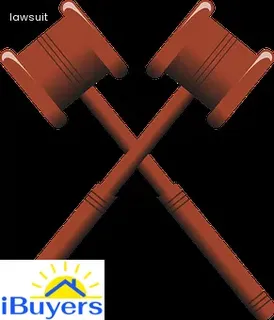In Iowa, debt collection companies can take a variety of actions to recover money owed to them. This includes lien placement on properties, garnishment of wages, and seizing bank accounts.
However, when it comes to medical bills, the rules are more stringent. As per the state's Estate Recovery Program, creditors may go through a court-ordered process to collect on unpaid medical bills from estates of deceased individuals who used Medicaid benefits while alive.
If the court determines that an estate has sufficient resources to pay off the debt, they may approve seizure of property owned by the estate in order to satisfy these debts. Iowa law also allows creditors to place liens on real estate or other property owned by a debtor in order to recover money owed.
Such liens can remain active for up to 10 years and must be paid off before transferring ownership of the property or refinancing any loans associated with it. It is important for those facing debt collection efforts in Iowa to understand their rights under both state and federal laws in order to avoid potential loss of assets.

In Iowa, debt collectors may try to take a person's house in order to recover unpaid medical bills. However, while they can attempt to do so, there are certain exemptions that protect a person's home from being taken away.
It is important to understand the nature of estate recovery law and how it impacts property ownership. Generally speaking, under Iowa law, certain types of property are exempt from collection by creditors and debt collectors.
This includes homesteads, which are primary residences; family farms; and up to $5,000 of personal property per debtor. In addition, any real estate or personal property owned jointly with another individual is usually not subject to debt collection in Iowa.
Furthermore, proceeds from life insurance policies or annuities may also be exempt from legal actions brought by creditors. Understanding what types of property are exempt from collection can help protect a person's home and other assets in the event that they face a court-ordered seizure of their property due to unpaid medical debts.
In Iowa, it is important to understand the homestead exemption when it comes to estate recovery and medical bills. Under Iowa law, a homestead exemption can protect a person's primary residence from being taken in order to pay for medical bills.
This means that if you are faced with debt collection or estate recovery for medical expenses, your property and home are shielded from seizure. The amount of protection offered depends on the value of the property and how much equity is held in it.
In some cases, even if there is equity in the property, a certain amount will remain exempt depending on whether it is owned by one or two people. Additionally, if you are over 65 or disabled, then the homestead exemption may apply to you as well.
It is important to consult an attorney in order to determine if your home falls under this exemption before making any decisions about repaying debts or recovering estates.

When dealing with debt collection in Iowa, it is important to understand which personal belongings are exempt from being taken away. Generally, any assets that are considered necessary for everyday life such as clothing, furniture, and appliances are exempt from the estate recovery process and cannot be taken away by debt collectors.
In addition, certain assets may be protected through homestead exemption laws which can shield a person's home or land from collection efforts. When evaluating whether a piece of property is eligible for an exemption status, it is important to consider how much equity is involved and whether the asset has economic value.
This can help protect essential items from being seized and allow individuals to keep hold of their personal belongings even when facing financial hardship.
When it comes to medical debt, Iowa residents must understand the state's estate recovery law and how it may impact their investments and retirement accounts. Knowing the regulations surrounding these accounts is essential for any debtor in order to protect their property from collection efforts by creditors.
In general, most IRAs and 401(k)s are exempt from debt collection proceedings in Iowa. However, other investment accounts such as brokerage funds, stocks and bonds are not typically included in this exemption.
As such, they may be subject to being seized if a debtor is found liable for a medical bill that has gone unpaid. Understanding these laws can help individuals plan accordingly when considering an investment portfolio or retirement plan so as to ensure their hard-earned money remains safe from creditors.

When it comes to understanding the impact of debt collection and estate recovery in Iowa, it is important to understand the potential for a medical bill to cause you to lose your house. Under Iowa law, there are certain assets that may be exempt from collection when it comes to medical bills.
As such, it is important to consider these other assets as potential exempt property. This could include things like Social Security benefits or veteran's benefits, as well as any funds held in an individual retirement account or joint tenancy with a right of survivorship.
In addition, homesteads may also be exempt from collection depending on their value. It is important to note that protections may vary depending on the age and status of the debtor, so it is wise to consult with a legal professional if you have questions about how your assets might be impacted by estate recovery laws in Iowa.
Navigating language accessibility for member services is an important part of understanding Iowa's estate recovery law and how debt collection can impact one's property. Knowing which services are available in the language of the individual can be key in ensuring that they understand their rights when it comes to medical bills.
Language barriers can mean that members don't have access to necessary resources, so it's important for organizations to ensure that all members have access to services in a language they understand. This can also help them better comprehend the laws relating to recovering medical debts from estates, so that they understand what might be at stake if they don't pay their debts on time.
Providing support in different languages is essential for any organization that wants its members to feel comfortable engaging with them and understanding their rights when it comes to estate recovery and other related matters.

Exploring the print edition of resource materials can be an invaluable way for those interested in learning more about the complexities of medical bill recovery law and debt collection impact on property in Iowa. With comprehensive information on relevant statutes, regulations, and case law, printed resources are a great place to start when researching this topic.
By reading through these materials, readers can gain a better understanding of how estate recovery works and if they may be at risk of having their house taken due to unpaid medical bills. Additionally, readers can learn more about the rights of creditors and debtors as well as the specific procedures necessary for enforcing judgments.
Ultimately, by reading through these materials, readers will have a much better grasp on this complex area of law so they can make informed decisions regarding their personal finances.
For those seeking an understanding of Iowa’s Estate Recovery Law, free e-book resources are a great way to increase knowledge. E-books offer detailed information on how medical bills can affect the ownership of one's home or property, as well as actions that can be taken to avoid this.
Additionally, e-books provide insight into debt collection practices and how they tie into Estate Recovery Law in Iowa. Moreover, readers can find information about what happens to a person’s house if they fall behind on their medical bills and other related topics.
Finally, these resources cover the various legal options and strategies available to those affected by medical bill debt in Iowa. Free e-books can provide a comprehensive understanding of the laws governing estate recovery and debt collection in the state of Iowa, giving readers invaluable knowledge that may prove advantageous in certain situations.

Member services locations have different hours of operation to ensure that all individuals have access to the resources they need. The hours of operation vary by location, so it is important to review the options before making a trip.
In Iowa, medical bills can take your house due to estate recovery laws and debt collection practices. It is essential for people to be aware of these laws so they can better understand the potential impact on their property.
Knowing the hours of operation for member services locations allows individuals to gain access to helpful information and get answers to questions about estate recovery law and debt collection practices. Making use of these services can help people make informed decisions regarding their finances and secure their assets.
The Iowa debt collection laws provide important information for those facing medical bills and potential property loss. It is essential to understand the estate recovery law, which outlines the details of how a debt collector may pursue a claim against a deceased individual’s estate.
Additionally, it is important to know how debt collectors can impact property rights in Iowa and when they are allowed to seek repayment from a deceased individual’s estate. Understanding these rules and regulations is paramount for any person facing large medical bills or potential asset loss in the state of Iowa.
Knowing what rights you have and what steps you need to take is critical for protecting yourself from legal action that could hurt your finances or potentially put your home in jeopardy. By researching content related to Iowa debt collection laws, individuals can get a better understanding of the legal implications associated with unpaid debts and how best to mitigate them.

In Iowa, understanding the state's estate recovery law and debt collection impact on property can be essential to protecting assets from creditors. It's important to know that medical bills can take your house if certain conditions are met.
These include if the owner of a property is a Medicaid recipient who has passed away, or if they have been receiving Medicaid services for at least one year prior to death. Depending on the situation, creditors may also be able to seize real estate even if it is not owned by the debtor due to joint tenancy or tenancy in common.
To further protect assets from creditors, Iowa law states that homesteads are exempt from execution and forced sale unless a valid judgment has been obtained against it. Additionally, spouses are allowed to transfer assets between them without worrying about creditors seizing the property.
With all these considerations in mind, individuals in Iowa should understand their rights and responsibilities when it comes to dealing with debts and protecting their assets from creditors.
In Iowa, medical bills can lead to property repossession if the debt is not paid or proper legal strategies are not implemented. Debt collectors may be able to take a person’s house under the state’s estate recovery law if they have received Medicaid payments for long-term care services, such as nursing home care or home health services.
Fortunately, there are several legal strategies that individuals in Iowa can employ to avoid having their homes taken away due to unpaid medical bills. Consulting with an attorney who specializes in bankruptcy and debt collection laws can provide guidance on potential options for avoiding repossession of one’s house by creditors.
In addition, people should be aware of their rights when it comes to debt collection practices and contact the Iowa Attorney General's Office if any violations occur. Being proactive about understanding the legal implications of medical bills is essential for those at risk of house repossession in Iowa.

In Iowa, there are several different types of protections for property when it comes to medical bills. Understanding the estate recovery law, debt collection practices and potential impacts on property is essential for anyone who may face medical debt.
In most cases, a creditor cannot take a person’s home to satisfy a medical bill and any liens must be filed with the county recorder’s office in order to be valid. Additionally, there are exemptions that some properties may qualify for.
These include homestead exemptions which provide certain levels of protection as well as “wildcard” exemptions which allow an individual to protect a certain amount of equity from creditors. Other important considerations include bankruptcy laws, state laws regarding secured debts and whether or not an individual owns a mobile home instead of real property.
All these factors can help to ensure that one’s property is properly protected from medical bills or other debt collection practices.
In Iowa, when a person passes away, their assets are subject to estate recovery for medical expenses. This means that any outstanding medical bills must be paid off before the deceased’s property is distributed according to their will.
Depending on the size of the estate and the amount of debt, this could leave the surviving family with little or no assets. However, there are exemptions available in Iowa to help protect certain assets from being taken to pay off medical debts.
To claim an exemption, it is important to understand the statutory requirements which vary depending on the type of asset. For instance, homesteads are exempt up to a certain value while bank accounts may require additional documentation such as proof of joint tenancy with right of survivorship.
Additionally, certain types of life insurance policies may be exempt from estate recovery if owned by an irrevocable trust. Knowing these distinctions can help protect family members from having their house taken away due to outstanding medical bills after a loved one has passed away in Iowa.

In Iowa, court procedures related to contested claims of exemption can be complex and difficult to understand. In the context of estate recovery law and debt collection, a house can be taken by creditors if certain conditions are met.
It is important to understand how this process works in order to protect yourself from potential financial loss. Depending on the circumstances, an individual’s exemptions may be challenged in court by creditors as part of a debt collection effort.
If the court concludes that the exemptions are invalid, the house may be subject to foreclosure or other forms of forced sale. The court may also order the debtor to pay back any money previously received from their exempt assets.
Additionally, creditors may have a legal right to place liens on property belonging to individuals who owe them money. Understanding these procedures can help individuals determine what actions they need to take in order to protect their assets from being seized by creditors in Iowa.
In Iowa, filing false documents to exempt property claims can have serious legal repercussions. It is important to understand the law surrounding estate recovery and debt collection in order to ensure that your property is protected.
State laws vary on what constitutes an exempt property claim and when legally allowed exemptions apply. In Iowa, medical bills can take your house in certain circumstances if the proper paperwork has not been filed.
This includes when a person has passed away or is unable to pay the bill due to disability or illness. It is important for people in Iowa to know their rights and take steps to protect their homes from becoming collateral for unpaid medical bills.
Estate recovery laws are complex and it is essential that those facing potential financial risk understand how these laws may affect them and their estate planning decisions. Understanding the implications of filing false documents regarding exempt property claims in Iowa can help individuals better protect themselves from costly legal consequences.

The tax implications of applying for an exemption from creditors in Iowa are vast and must be thoroughly explored. It is important to understand the rights and responsibilities of creditors and debtors under Iowa law, as well as the impact on property when it comes to debt collection.
When appealing a ruling involving a claimed exemption from creditors, knowledge of relevant regulations is essential. Furthermore, one must take into account estate recovery laws that may exist in the state, which are designed to ensure medical bills are paid prior to any other debts or assets.
For those with large medical bills, understanding how these rules will affect their ability to keep their home can be very important in avoiding long-term financial hardship.
In Iowa, the statute of limitations for medical bills is five years. This means that if a person has an outstanding debt due to medical bills, they have five years from the date of last payment or service before they can be taken to court in order to collect on the debt.
After this time period has passed, creditors are unable to bring legal action against a debtor for unpaid medical bills. It is important for individuals to understand their rights when it comes to medical debt and taking on financial obligations related to healthcare costs so as not to face severe consequences such as loss of property or wages.
Additionally, some states may have different laws regarding estate recovery and collection practices that could potentially impact property ownership depending on the situation. Knowing the laws related to medical bill collections in Iowa and how they could affect your assets is essential for avoiding potential financial hardship that could result from unpaid medical debts.

In Iowa, debt collectors have 7 years to attempt to collect unpaid medical bills. After that period of time has passed, the debt is considered "time-barred," which means it can no longer be enforced by a court of law.
If a collector tries to take legal action against a debtor after this deadline has passed, they may be at risk for violating state and federal debt collection laws. Estate recovery is a special case, however.
The Iowa Medicaid program reserves the right to seek repayment from an estate for medical bills paid on behalf of the deceased individual. This means that even if the 7 year statute of limitations has passed, Medicaid may still try to recoup some of its costs from an estate sale in the form of property or other assets.
It's important for Iowans to understand their rights when it comes to these matters so that they can make sure their estates are properly protected in case of death or disability.
In Iowa, the responsibility for medical debt is determined by the type of debt and the amount owed. Under state law, spouses are not typically held responsible for each other's medical debts unless they have signed a joint agreement or contract.
However, if a spouse has co-signed for a loan to pay for healthcare services, then both spouses can be held liable for the debt. Additionally, if one spouse has incurred large medical expenses that have gone unpaid and their estate has been used to cover those costs, the other spouse may be responsible for the repayment of those funds.
In some cases, it is possible that estate recovery laws could result in a lien being placed on property owned jointly by both spouses. This could potentially lead to foreclosure proceedings if the debt cannot be paid off in time.
It is therefore important to understand your rights when it comes to medical debt collection and estate recovery laws in Iowa to ensure that you and your property are protected from undue financial hardship.
In Iowa, creditors can sue a debtor to collect a debt for up to 10 years from the date of last payment or contract. In order to bring a lawsuit against the debtor, the creditor must file a complaint in court and obtain a judgment from the judge.
The judgment will then give them the legal right to take action against the debtor’s assets or property to satisfy the debt. Debt collectors may also attempt to recover money owed by seizing assets such as wages, bank accounts, and even real estate.
Property owners should be aware that medical bills are subject to estate recovery laws and can result in foreclosure proceedings if they are not paid in full. Understanding how long you can be sued for debt in Iowa is essential for protecting your assets and avoiding financial hardship due to unpaid medical bills.